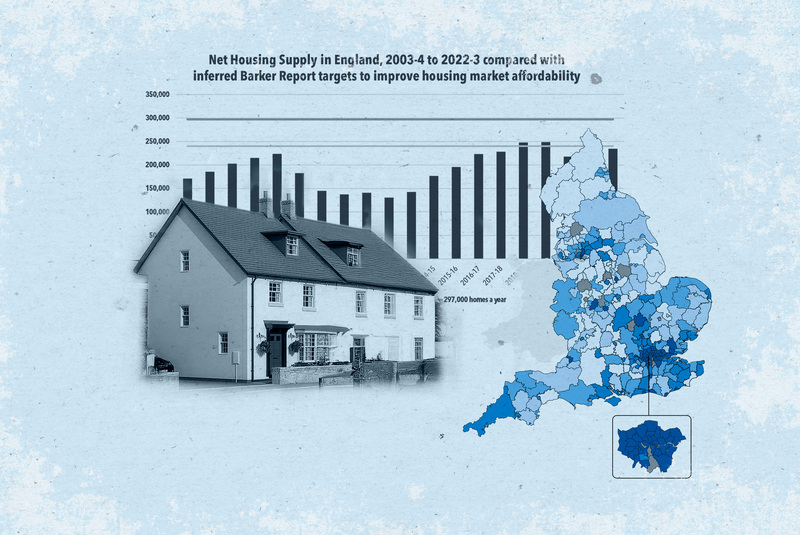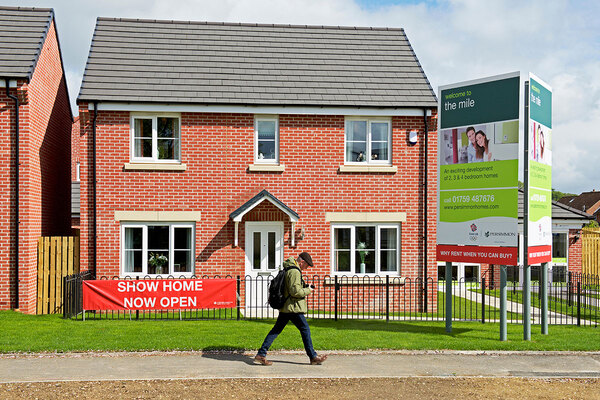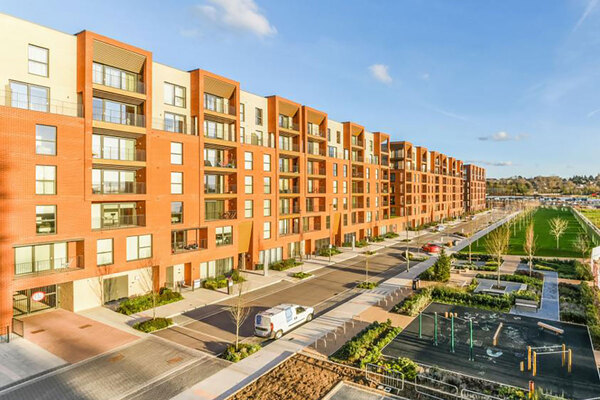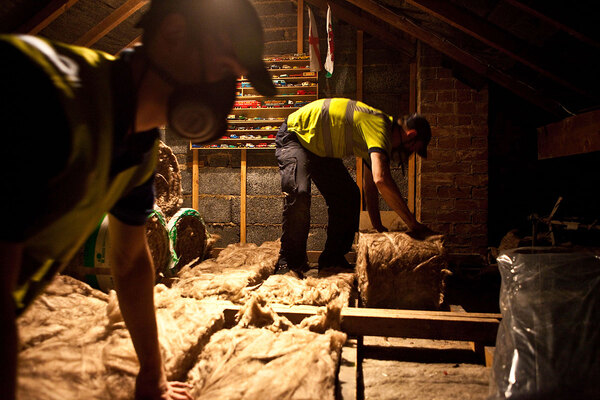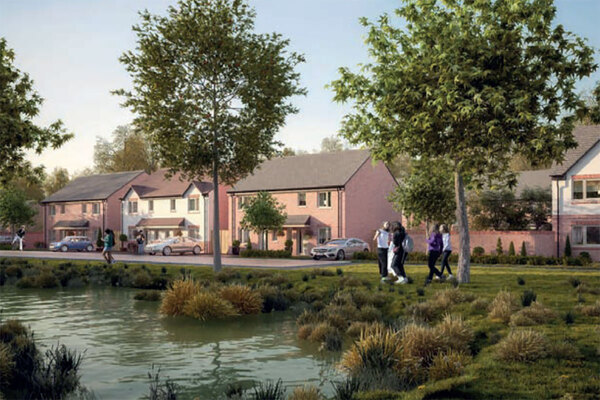The Thinkhouse Review of 2024 – the best housing research of the year
From heat pumps, to homelessness, to the private rented sector, Richard Hyde, chair of the Thinkhouse Editorial Panel, reflects on the top five pieces of housing research in the past year
2024 was a landmark year for Thinkhouse.org.uk, as we now have 1,000 reports on the site. All of these reports look at ways to increase the amount and quality of the UK’s housing stock and the related economic, social and community benefits of doing this.
When we started Thinkhouse in 2017, we could not have imagined passing the 1,000 benchmark. Thinkhouse is now probably one of the most comprehensive online libraries for housing researchers and policymakers. For instance, if you enter ‘homelessness’ into our search engine, you can access over 100 reports that help you understand the issues and provide a range of policy options – some tried and tested, some not.
We remain true to our original aim of making access free and easy.
Along the way, we launched the Early Career Researcher’s Prize, and I congratulate this year’s winner. Michael Marshall, a research associate at the University of Sheffield and the UK Collaborative Centre for Housing Evidence (CaCHE), won with his paper Non-decent homes: What are they? Where are they located? Let’s find out!.
In 2024, the Thinkhouse Editorial Panel saw over 100 reports, all of which were uploaded and classified in our web library. The 20 members of the panel assess the quality of the research, innovation, the breadth of analysis and whether the recommendations can be translated easily into policy or influence decision-makers. The panel’s members are drawn from a cross-section of the housing world: spanning academia and research, to the not-for-profit and business sectors.
The panel’s assessment translates into a score we use to rank and then showcase the top reports. Here are the 2024 top five – in reverse order – and why we selected them. They include regular subjects, such as homelessness and the shortage of social houses, but the panel’s attention was also caught by a couple of papers that had a narrow and technical focus. They are all well-written, important pieces of analysis and research that can be translated into real-world solutions.
In fifth place is Beyond Barker, the Home Builders Federation’s (HBF) evaluation of the past 20 years of housing policy. Panel member Anna Clarke reviewed it for Inside Housing in May. Kate (now Dame) Barker’s original 2004 examination of supply and demand set out clearly that a shortage of housing was causing a real-term growth in house prices, and that this was undesirable.
She was realistic about the enormous challenges of building enough housing and instead estimated the level of housebuilding required in order to stabilise price growth at 1.1% in real terms at around 240,000 homes per year, a significant increase on the rate of housebuilding at the time. The review went on to make recommendations for what needed to be done to increase housing supply.
The HBF’s report maps out all these recommendations and looks at which were implemented. It is a depressing read in many ways, as the HBF concludes that, of 36 recommendations, 11 were implemented and are still in place, 10 were partially implemented, five were implemented and then reversed, and the other 10 were not implemented at all. It’s perhaps unsurprising, then, that the level of housebuilding achieved – averaging 190,000 a year over the 20-year period – has fallen well short of the 240,000 target.
In fourth place is The running cost of domestic heat pumps in the UK, by Nicholas Harrington, a research associate at the University of Glasgow, for CaCHE. This report is one of the first we have curated on this subject, and this is probably why it caught the attention of the panel. As it says on the front cover, it is indeed a comprehensive evidence review and evaluation.
The subject matter is the cause of much policy angst. Dr Harrington clearly sets out how the electricity-to-gas price ratio affects the take-up of heat pumps. He highlights how the addition of solar panels and battery storage renders heat pumps less expensive to run than efficient gas boilers. This paper is a comprehensive analysis for any policy expert or researcher who wishes to understand the constraints on the roll-out of heat pumps.
In third place is The effectiveness of government in tackling homelessness by the National Audit Office. It assesses whether the Ministry of Housing, Communities and Local Government is working with government departments and local authorities in a way that maximises the government’s ability to tackle homelessness.
Across all tiers of government, £2.5bn is spent on assisting people who are homeless or threatened with homelessness. This report probably does not make good reading for those responsible to reverse the trend. It points out that a lack of overarching strategy is leading to uncoordinated decisions across government departments. In particular, it highlights the supply of affordable housing, which is falling behind targets.
The new government is on record that it wants to address this, and the Prince of Wales is also influencing policy. I, like the majority of those who work in housing, really hope progress can be made.
In second place is From the ground up: how the government can build more homes, by Sophie Metcalfe, a researcher at the Institute for Government. This report goes right to the heart of why Thinkhouse was set up. In October, Ken Gibb, a professor in housing economics at the University of Glasgow and a member of the Editorial Panel, reviewed it for Inside Housing.
He said the report combines diagnosis of past failure to deliver, a nuanced appreciation of the different factors that constrain building homes, and a series of principles and recommendations about housebuilding. Written for the public-policy ecosystem, it is a refreshing and broad perspective. It highlights not just the well-trodden arguments about planning delays and the declining capacity of the planning function, but also the problems that can be laid at the door of developers that trickle out new builds to maintain prices.
The report connects the housebuilding programme to a wider set of governance reforms and a more systemic approach to housing policy. This includes: long-termism to ensure that housebuilding remains a high political priority throughout, such as making long-term ministerial appointments; reconciling housebuilding with environmental objectives; prioritising national housing targets over local objections, but local areas need to share in the benefits of new development; and supporting skills development and the people capacity to ensure programmes are resilient and sustainable.
Finally, in first place and the Editorial Panel’s highest-ranked report, was Cambridge House’s Licensing Private Rented Homes by Roz Spencer, head of service for safer renting at the charity, and Julie Rugg, a senior research fellow at the University of York. It looks at experiences and insights from five London boroughs.
The private rented sector (PRS) is now larger than the social rented sector, and households renting privately are more likely to live in homes that are non-compliant with the Decent Homes Standard. However, as yet there is no national system for licensing privately rented homes. Licensing has been studied extensively, and a raft of reports already draw attention to its value as an intervention, as well as the changes needed to make that intervention more effective.
The panel felt this research really added to this pool of intelligence. It drew on in-depth interviews with licensing and enforcement leaders in each of the five local authorities, looking at the dynamic process of mobilising discretionary licensing schemes, in particular the obstacles and challenges, and how some reframing of the government regime might help it work with local authorities to deliver on its stated purpose: to raise standards in the PRS.
The panel also believed the recommendations were grounded in an understanding of the constraints faced by local authorities and government. It offered real and practical solutions to the issue of non-compliance and the hazards PRS renters face, such as a lack of gas safety inspections and long-term health risks from living in a damp or mouldy home. There can be no doubt that, as a nation, we are letting these renters down. This report is a must-read for all those who have scope to influence policy development in this area.
Richard Hyde, founder and chair, Thinkhouse Editorial panel, with contributions from other panel members
Sign up for our daily newsletter
Already have an account? Click here to manage your newsletters
